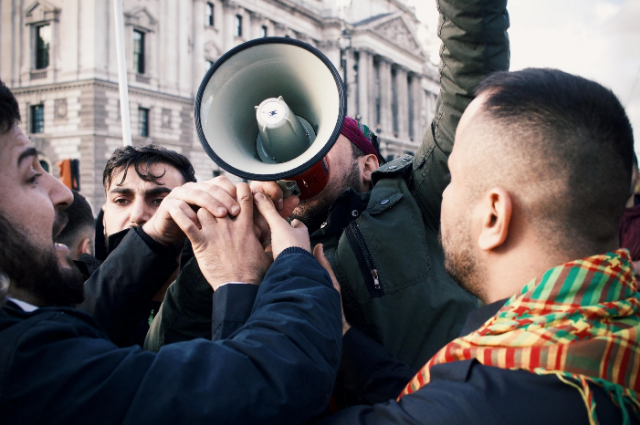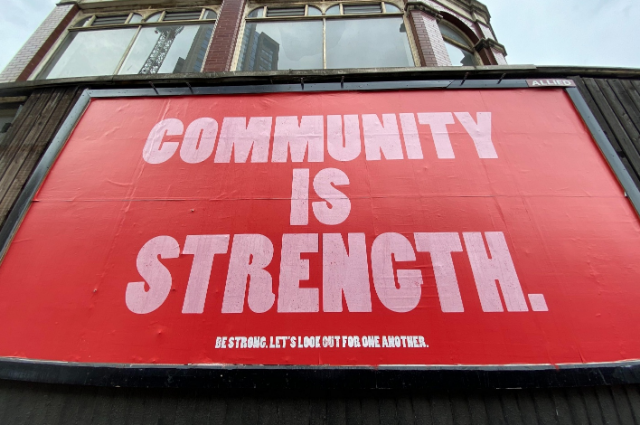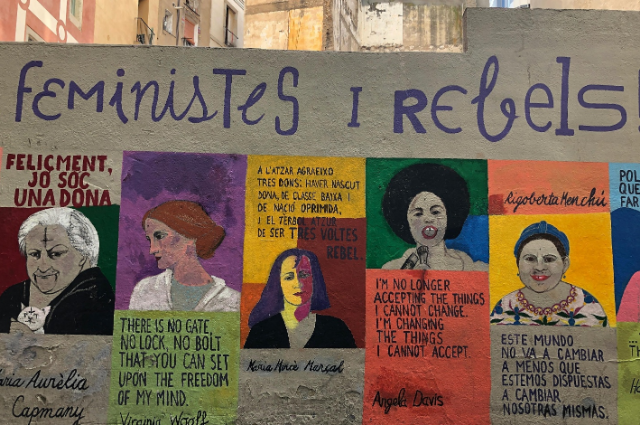
Before I discuss ‘politics’ in definition and meaning, I must disperse the misconception associated with the word ‘politics.’ Politics is not dirty tricks played by politicians.
Alan Ball on Politics
According to Alan Ball, the writer of ‘Modern Politics and Government(1988), people have two severe misconceptions about politics:--
- Politics pertains to public life only. Politics is all about elections and government.
- Politics is translated as ‘party politics’ which is all about games that cunning, power-greedy tricksters play with each other and innocent voters.
All this makes politics earn a bad reputation.
George Bernard Shaw, "Politics is the last resort for the scoundrel." ‘But, this is false and a blatantly wrong application of the word politics.
Origin of Politics
Let’s dive into the origin of the word ‘politics’.
‘Politics’ comes from the Greek word ‘polis’ which refers to ancient city-states in Greece. For example, Athens and Sparta were city-states. Now, each city-state was a geographic entity with a compact socio-cultural life to secure a good life for its inhabitants.
In the contemporary world, city-states are replaced by states, some of which are a million times bigger in size and influence.
Incorrect sense, politics is associated with states. The state's concerns are politics—regulating public activities by making public decisions, ensuring public safety, and maintaining public order. Thus, politics is oftentimes defined as the conduct of public life.
With time, the word politics has gained additional meaning. It is now regarded as a ‘social process and not just a mere understanding of states and their institutions.
Alan Ball considers it to be associated with human activities not just limited to the public sphere. For him, if it is to do with ‘conflict and conflict-resolution.
He gives the example—Two children fighting with each other over a toy. The mother comes to stop the violence to stop the quarrel.
Here the conflict is ‘two children fighting ‘ and to secure the toy they will ‘resort to violence ‘ but the mother comes to ‘resolve the conflict’ as she is strong enough to arbitrate the matter.
This definition of Alan Ball is criticized as it refers to a private matter with no utility in public life. It is argued political issues are public issues that demand universal solutions.
What is politicization?
If I had to describe politicization, I would definite it as a process of issues creation. Stephen L. Wasby writes “Where there is politics, it is said, there is controversy; where there are issues there is politics. Where no controversy exists, where no issues are being debated, politics does not exist.”
Various social groups have politicized caste, language, religion, gender, etc.
There was low-level politicization during monarchies, as it was only the monarch who would take political decisions without considering the general public. In democracies, we witness a high-level politicization because people are free to criticize, express their interests, form associations, take part in elections, stage demonstrations, etc.
Various Perspectives of Politics
- Liberal Perspective
Liberals abstain from being at the ends of extremes, thus they try to center themselves to find a compromise. They find politics as a group activity and state activity.
Liberals perceive politics as a potential instrument of government to reconcile conflicting interests. They say that society is divided into various groups based on caste, religion, language, ethnicity, etc. Each group has a certain interest. They politicize their interest to draw the attention of the government because the only government is capable of approving and fulfilling their interests by taking lawful measures. The state tries to identify common interests among conflicting group interests. The state tries to settle disputes without being biased toward a particular group.
Liberals also find politics as a means to advance ‘common interest’. Since various groups are present within the state, the state tries to identify the common good which is the common interests of all groups within the society. This is one of the principles used by modern welfare states. It is argued that for the good of all, each group can sacrifice some of its selfish interests.
Chief exponents of the Liberal perspective are John Locke, Jeremy Bentham, John Stuart Mill, Harold J.Laski, and Robert Dahl.
In essence, Liberals believe that the rift of conflict among groups isn’t very deep, it be can easily resolve and disparities can be mitigated through compromise. - Marxist Perspective
Karl Marx, Friedrich Engels, and Vladimir Lenin are the chief exponents of this perspective. They view politics as a method of class domination.
Marxist believe that politics influence economic, and the richer always have an upper hand in political decisions. This is the base-superstructure theory, where economic power is the base of erecting political power.
Due to capitalism (private property and private ownership) in liberal democracies, society is divided into two classes—haves and have-nots. ‘Haves’ are those who have the reins of production and politics. Haves and Have-nots are two mutually antagonistic classes. A capitalist makes a profit by exploiting the worker. In capitalist states, the concentration of wealth and power is in the hands of a few.
The economic disparity can only be overcome by the overthrow of capitalism by a socialist revolution.
Here, the Marxists have politicized the issue of class conflict. They view politics as a way of suppressing the have-nots. Besides this, they view politics as an instrument of heralding a socialist revolution in which private ownership will be replaced by public ownership. - Communitarian Perspective
Communitarians stress community and social relations. The chief exponents of the communitarian perspective are Alasdair MacIntyre, Charles Taylor, Michael Sandel, and Michael Walzer.
Communitarians resent the liberal idea of an isolated individual. Charles Taylor calls it the ‘atomistic’ conception of humans. Liberals disregard society because they believe that society puts constraints on the individual and no person is liable to society for its dreams and goals.
Communitarians on the other hand say that an individual cannot stay aloof from society. The farther he is, the unhappier he gets. Human beings are social animals and they long for emotional security and common understanding. They derive happiness when they contribute to the community and earn prestige in return.
Thus politics is a means to pursue the good of all. It is a tool to enable cooperation among individuals and forge. Unlike, liberals they don’t see too much conflict

- Feminist Perspective
Besides, the Liberal, Marxists, and Communitarian perspectives the Feminist perspective has also gained relevance. Gender inequality has persisted throughout the history of mankind. Mary Wollstonecraft the author of ‘A Vindication of the Rights of Woman is a celebrated work in the Feminist ideology.
The other notable names are Simone de Beauvoir (The Second Sex), Kate Mullet (Sexual Politics), Rebecca Walker (Becoming the Third Wave); Cynthia Enloe (Banana, Beaches, and Bases).
The Feminists perspective keeps women at the core but it isn’t a consistent ideology. Due to generational gaps, feminism is divided into four waves.

- 1st Wave of Feminism(early 19th – 20th Century)- focused on women's suffrage and their political rights.
- 2nd Wave of Feminism(the 1960s and 70s)- focused on civil rights, and opportunities in various fields like education, medicine politics and business. Abortion rights are also associated with this wave.
- 3rd Wave of Feminism (the 1990s)- It focused on redefining the meaning of sexuality, femininity, masculinity, beauty, etc.
- 4th Wave of Feminism (2010- ) focuses on women empowerment and dealing with issues of assault and harassment.
Domestic violence was politicized during the second wave of feminism when Carol Hanish coined the slogan “Personal is Political’’.
The concerns of women have also been internationalized as Cynthia Enloe and J. Ann Tickner reveal how women are the worst affected victims of wars.
- Party-politics and Elections
It is said that “birds of same feathers, flock together”. Like-minded people become friends and form a group. A group may enlarge into an association or organization.
Political parties comprise individuals who have a similar view about local, regional or national issues. Parties compete against each other during elections to form the government.
In the contemporary world, most countries call themselves democracies.
Even communist countries like China hold a façade of elections. (There is only one party that nominates its candidate and so no real choice is available to the public).
A democratic election has certain prerequisites such as –universal adult franchise; availability of choice; one person, one vote, one value; free and fair elections.
The notorious party politics is concerned with attacking the enemy party by criticizing its ideology. The party in power tries to stay in power by proving the efficiency of its policies while the opposite party pinpoints the loopholes in the policies.
The party politics have been infamous for malpractices and it is said that it keeps the good people away from politics. However, the rationale behind the elections is that even if political leaders are driven by the thirst for power, they have to work for the country or they lose power in the elections. Thus, in the long run, the elections among different parties are far better than a dictator on your head.
Conclusion
Politics in theory may be way different from politics in reality. In theory, we see different perspectives, in practice, we see different tactics. In theory, politics is around ideologies while in practice politics is around people. The purpose of the article was not to thrust theory among readers but to reveal to them the diversity of opinions among liberals, Marxists, communitarians, and feminists. How do people see the same world, through a different lens, and do politics get their objectives fulfilled?
